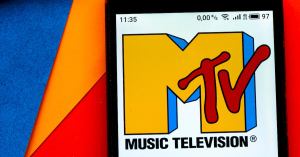The coronavirus pandemic has spawned a lot of rumors, myths and misinformation, and experts are working hard to combat their spread and prevent panic. Many of the new urban legends surrounding COVID-19 range from unhelpful to legitimately dangerous for people who might take the advice. Thankfully, this crisis has also led to some of the most forceful fact-checking ever conducted in the Internet age.
The coronavirus has gone global, and understandably led to waves of panic all over the world. Experts have shared what they know about the virus — and in some cases, what they can safely guess — but their words are often twisted through constant re-telling. Between wall-to-wall news coverage, unvetted statements from politicians and the buzz of conversation on social media, many flat out false myths have gained traction. Thankfully, the World Health Organization has set the record straight.
Videos by PopCulture.com
The WHO has a page on its website specifically dedicated to “COVID-19 Myth Busters.” It lists the most prevalent rumors about the virus and explains how they are false or only partially true. The explanations strive to avoid complicated jargon and present practical information for the average person to use.
This is just a part of the strong response to coronavirus misinformation online. Many of the biggest sites are the internet are working hard to false information from spreading on their platforms, including Google, YouTube, Facebook, Twitter and Instagram, among others.
Still, some rumors inevitably slip through the cracks, and it is difficult to put the toothpaste back in the tube at that point. For the most reliable information, always check scientific sources like the WHO or the Center for Disease Control and Prevention. In the meantime, here are some of the most prevalent myths about COVID-19 that have been debunked.
5G

A surprisingly prevalent conspiracy theory suggests that the coronavirus pandemic was caused or at least amplified by the latest wireless technology, 5G networks, has stubbornly held on. According to a report by CNN, the idea “began circulating on the fringes of the internet, where New Agers and QAnon followers” put it forth. The idea made it into the mainstream conversation against all odds, carried by some surprisingly popular celebrity voices.
Experts say this theory is absolutely untrue, with no basis in science whatsoever. “Viruses cannot travel on radio waves/mobile networks,” notes the WHO. “COVID-19 is spreading in many countries that do not have 5G mobile networks.”
Age

Only some of the people infected with COVID-19 experience severe symptoms, and of them, only some pass away. Meanwhile, some have found the virus to be similar to any other seasonal respiratory infection. The WHO notes that Older people, and people with pre-existing medical conditions (such as asthma, diabetes, heart disease) appear to be more vulnerable to becoming severely ill with the virus,” however, it says that this does not mean younger people should ignore the pandemic.
“WHO advises people of all ages to take steps to protect themselves from the virus, for example by following good hand hygiene and good respiratory hygiene,” it said. While older people face a higher risk of becoming hospitalized by COVID-19, many young people have done so as well. Everyone faces some danger of mortality from the virus.
Beyond that, preventative measures like social distancing are not only meant to protect the individual practicing them. They are there to slow the spread of the virus in general, thereby protecting the most vulnerable populations as well. Experts say that everyone should continue staying home as much as possible.
Weather and Sunlight

Several contradictory claims about the coronavirus and the weather have circulated, all reportedly false. According to the WHO, high temperatures will not slow or prevent the spread of COVID-19, nor will frequent exposure to direct sunlight, as some have claimed. Humidity is not a factor either, nor is a generally warmer climate in equatorial areas.
Somehow, the opposite idea has also proliferated, stating that the coronavirus cannot survive in cold or snowy climates. This is also false, according to the WHO. For one thing, “the normal human body temperature remains around 36.5 degrees C to 37 degrees, regardless of the external temperature or weather.” Experts say to practice social distancing and careful hygiene wherever you live and no matter the season as long as this pandemic persists.
Holding Your Breath

When the coronavirus began to reach the U.S. in early March, Fox News host Geraldo Rivera told viewers: “If you can hold your breath for ten seconds, you don’t have this disease.” The same idea soon began to spread in a viral social media post, but the experts say it has no basis in fact. Pulmonologist Dr. Thomas Nash told Reuters at the time that the “breath test” idea was “just made up.”
In fact, the WHO says that there is no reliable self-test to be conducted at home for COVID-19 at this time. People who fear they may have the virus should go to their doctor and request a specific laboratory test, which may be available.
Alcohol

Many claims — some apparently joking and some not — suggest that drinking alcoholic beverages sterilizes the mouth and throat, and therefore helps protect against the coronavirus. The WHO says that this is false, and that “frequent or excessive alcohol consumption can increase your risk of health problems.”
Another claim says that dowsing your body in alcohol or chlorine-based sprays or cleaning solution can prevent the virus as well, but the WHO says that this is dangerous. Not only will this not protect against the virus, it “can be harmful” to the body. Experts say to reserve alcohol or chlorine for cleaning surfaces, not people.
Hot Bath

A popular theory suggests that taking a hot bath will help prevent the coronavirus, perhaps by raising a person’s body temperature to a level the virus cannot survive in. The WHO says that this is false, as your normal body temperature will persist regardless of the temperature of your bath or shower. Attempting this DIY solution can actually “be harmful, as it can burn you,” the WHO notes. Normal hygiene practices are preferable to this extreme measure.
Mosquitoes

The coronavirus is spread primarily through respiratory droplets when an infected person coughs, sneezes or even talks near another person. To date, there is no information to suggest that mosquitoes can carry the virus, the WHO says, so it is not clear where this rumor came from. Experts say to simply wash your hands and avoid crowded areas rather than focusing on mosquito protection.
Hand Dryers

Another rumor suggests that the hand dryers often found in public rest rooms can kill the coronavirus, but the WHO says that this is false as well. The forced hot air is a safe and sustainable way of drying your hands, but it is the soap and water from washing them in the first place that kills the virus.
Ultraviolet Light

Ultraviolet lamps cannot kill the coronavirus, the WHO says. Moreover, this kind of radiation can actually cause significant irritation to the skin. Ultraviolet lights are not a replacement for hand-washing, and should not be used in an attempt to sterilize skin in any way.
Nasal Spray

Some have suggested that regular use of saline nasal spray can help prevent the coronavirus, but the WHO says that this is false. The organization notes that “there is some limited evidence that regularly rinsing nose with saline can help people recover more quickly from the common cold. However, regularly rinsing the nose has not been shown to prevent respiratory infections.”
Pets
According to the CDC, there is still no evidence that household pets can spread SARS-CoV-2 or COVID-19 humans or vice versa. After a tiger at a New York City zoo recently tested positive for COVID-19, many people began to fear for their house cats, but so far there is no cause for alarm. However, experts say to “treat pets as you would other human family members – do not let pets interact with people or animals outside the household. If a person inside the household becomes sick, isolate that person from everyone else, including pets.”
Lifelong

Finally, some terrifying rumors have suggested that a person who catches COVID-19 will have it for the rest of their life. This is not true, according to the WHO. “Most of the people who catch COVID-19 can recover and eliminate the virus from their bodies,” the organization explained.
For the latest information on the coronavirus pandemic, check the WHO or the CDC’s website. Be sure to fact-check any information found on social media with scientific sources.








